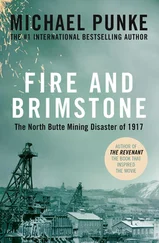George Bryce - The Siege and Conquest of the North Pole
Здесь есть возможность читать онлайн «George Bryce - The Siege and Conquest of the North Pole» — ознакомительный отрывок электронной книги совершенно бесплатно, а после прочтения отрывка купить полную версию. В некоторых случаях можно слушать аудио, скачать через торрент в формате fb2 и присутствует краткое содержание. Жанр: foreign_antique, foreign_prose, на английском языке. Описание произведения, (предисловие) а так же отзывы посетителей доступны на портале библиотеки ЛибКат.
- Название:The Siege and Conquest of the North Pole
- Автор:
- Жанр:
- Год:неизвестен
- ISBN:нет данных
- Рейтинг книги:5 / 5. Голосов: 1
-
Избранное:Добавить в избранное
- Отзывы:
-
Ваша оценка:
- 100
- 1
- 2
- 3
- 4
- 5
The Siege and Conquest of the North Pole: краткое содержание, описание и аннотация
Предлагаем к чтению аннотацию, описание, краткое содержание или предисловие (зависит от того, что написал сам автор книги «The Siege and Conquest of the North Pole»). Если вы не нашли необходимую информацию о книге — напишите в комментариях, мы постараемся отыскать её.
The Siege and Conquest of the North Pole — читать онлайн ознакомительный отрывок
Ниже представлен текст книги, разбитый по страницам. Система сохранения места последней прочитанной страницы, позволяет с удобством читать онлайн бесплатно книгу «The Siege and Conquest of the North Pole», без необходимости каждый раз заново искать на чём Вы остановились. Поставьте закладку, и сможете в любой момент перейти на страницу, на которой закончили чтение.
Интервал:
Закладка:
“Probably our approach saved the contents of the tent; for when we reached it the tent was uninjured, though the bear had overturned it, tossing the buffalo-robes and pemmican into the snow: we missed only a couple of blanket-bags. What we recollect, however, and perhaps all we recollect, is, that we had great difficulty in raising it. We crawled into our reindeer sleeping-bags, without speaking, and for the next three hours slept on in a dreamy but intense slumber. When I awoke, my long beard was a mass of ice, frozen fast to the buffalo-skin: Godfrey had to cut me out with his jack-knife. Four days after our escape, I found my woollen comfortable with a goodly share of my beard still adhering to it.
“We were able to melt water and get some soup cooked before the rest of our party arrived: it took them but five hours to walk the 9 miles. They were doing well, and, considering the circumstances, in wonderful spirits. The day was most providentially windless, with a clear sun. All enjoyed the refreshment we had got ready: the crippled were repacked in their robes; and we sped briskly toward the hummock-ridges which lay between us and the Pinnacly Berg.
“The hummocks we had now to meet came properly under the designation of squeezed ice. A great chain of bergs stretching from north-west to south-east, moving with the tides, had compressed the surface-floes; and rearing them up on their edges, produced an area more like the volcanic pedragal of the basin of Mexico than anything else I can compare it to.
“It required desperate efforts to work our way over it, – literally desperate, for our strength failed us anew, and we began to lose our self-control. We could not abstain any longer from eating snow: our mouths swelled, and some of us became speechless. Happily the day was warmed by a clear sunshine, and the thermometer rose to −4° in the shade: otherwise we must have frozen.
“Our halts multiplied, and we fell half sleeping on the snow. I could not prevent it. Strange to say, it refreshed us. I ventured upon the experiment myself, making Riley wake me at the end of three minutes; and I felt so much benefited by it that I timed the men in the same way. They sat on the runners of the sledge, fell asleep instantly, and were forced to wakefulness when their three minutes were out.
“By eight in the evening we emerged from the floes. The sight of the Pinnacly Berg revived us. Brandy, an invaluable resource in emergency, had already been served out in tablespoonful doses. We now took a longer rest, and a last stouter dram, and reached the brig at 1 p.m., we believe without a halt.
“I say we believe ; and here perhaps is the most decided proof of our sufferings: we were quite delirious, and had ceased to entertain a sane apprehension of the circumstances about us. We moved on like men in a dream. Our footmarks seen afterward showed that we had steered a bee-line for the brig. It must have been by a sort of instinct, for it left no impress on the memory. Bonsall was sent staggering ahead, and reached the brig, God knows how, for he had fallen repeatedly at the track-lines; but he delivered with punctilious accuracy the messages I had sent by him to Dr. Hayes. I thought myself the soundest of all, for I went through all the formula of sanity, and can recall the muttering delirium of my comrades when we got back into the cabin of our brig. Yet I have been told since of some speeches and some orders too of mine, which I should have remembered for their absurdity if my mind had retained its balance.
“Petersen and Whipple came out to meet us about 2 miles from the brig. They brought my dog-team, with the restoratives I had sent for by Bonsall. I do not remember their coming. Dr. Hayes entered with judicious energy upon the treatment our condition called for, administering morphine freely, after the usual frictions. He reported none of our brain-symptoms as serious, referring them properly to the class of those indications of exhausted power which yield to generous diet and rest. Mr. Ohlsen suffered some time from strabismus and blindness; two others underwent amputation of parts of the foot, without unpleasant consequences; and two died in spite of all our efforts. This rescue party had been out for seventy-two hours. We had halted in all eight hours, half of our number sleeping at a time. We travelled between 80 and 90 miles, most of the way dragging a heavy sledge. The mean temperature of the whole time, including the warmest hours of three days, was at −41.2°. We had no water except at our two halts, and were at no time able to intermit vigorous exercise without freezing.”
About the beginning of April 1854, Esquimaux made their appearance. For some time they caused trouble through stealing everything they could. Great tact was necessary in dealing with them, but this Dr. Kane possessed, and he was ultimately successful in making them close friends.
On 25th April, the advance party of the next sledging expedition left the brig, and was joined later by Dr. Kane. Deep snow was encountered, and several of the party began to show signs of the dreaded scurvy. A cache of provisions on which they intended to rely was found to have been almost entirely destroyed by bears. Dr. Kane himself became ill, and the whole party had to return when in the neighbourhood of the great glacier of Humboldt. They cached some of their stores, and an india-rubber boat, near Dallas Bay, in lat. 79.5°, long. 66°.
On the 20th May another sledge-party was sent off, and consisted of Dr. Hayes and William Godfrey. They were to cross Smith’s Straits above the inlet and make as near as possible a straight course for Cape Sabine. This they accomplished with great difficulty, and proceeded north on the ice along the west coast as far as latitude 79° 45′. They then returned south as far as Cape Sabine, and recrossed the straits, arriving at the brig on 1st June. This was a remarkable journey. The equipment was as follows: – a light sledge and team of seven dogs, 80 lb. of pemmican, 16 lb. of bread, 18 lb. of lard and rope-yarn for fuel; a reindeer-skin sleeping-bag for each, a lamp and pot for cooking, sextant, pocket-compass, telescope, Sharpe’s rifle, two extra pairs of stockings and one of boots for each. About the third day Dr. Hayes suffered from snow-blindness, and this caused some delay. The dogs’ harness lines had to be frequently repaired, which could only be done ultimately by cutting strips from Godfrey’s seal-skin trousers. Great hummocks of ice from 20 to 40 feet in height were encountered. In crossing these ridges the sledge frequently capsized and rolled over and over, dogs, cargo, and all. In twelve days a distance not less than 400 miles was covered; the last day’s travel, when provisions ran short, was 70 miles.
Dr. Kane had not completed the entire circuit of the frozen waters of Smith Sound. He could not yet say whether it was landlocked or whether a channel existed still farther to the north. This he determined to discover. McGary, Bonsall, Hickey, and Riley were detailed for the first section of the new parties. They were accompanied by Morton, who had orders to keep himself as fresh as possible, so as to enter on his farthest north reach in the best possible condition.
They left the vessel on the 4th of June, and made for the Humboldt Glacier. Here Morton was joined by Hans with the dog-sledge, and the two set out on the 18th June, pursuing a northerly course nearly parallel with the glacier, and from 4 to 7 miles distant from it, according to the condition of the ice. The icebergs given off by the glacier presented great difficulties, but these were finally overcome. On the 21st of June, Kennedy Channel was sighted, and they directed their course towards the cape at the eastern side of the entrance – Cape Andrew Jackson. Here they found open water, and it was with great difficulty that the cape was rounded. Still proceeding north, they reached Cape Constitution in latitude 81° 22′. An attempt to pass this cape failed. Morton climbed up the cliff to a height of 500 feet, and could get no farther. As far as he could see not a speck of ice was visible. He stated: “As far as I could discern, the sea was open, a swell coming in from the northward and running crosswise, as if with a small eastern set. The wind was due north – enough of it to make white caps – and the surf broke in on the rocks below in regular breakers. The sky to the north-west was of dark rain-cloud, the first that I had seen since the brig was frozen up. Ivory gulls were nesting in the rocks above me, and out to sea were mollemoke and silver-backed gulls. The ducks had not been seen north of the first island of the channel, but petrel and gulls hung about the waves near the coast.”
Читать дальшеИнтервал:
Закладка:
Похожие книги на «The Siege and Conquest of the North Pole»
Представляем Вашему вниманию похожие книги на «The Siege and Conquest of the North Pole» списком для выбора. Мы отобрали схожую по названию и смыслу литературу в надежде предоставить читателям больше вариантов отыскать новые, интересные, ещё непрочитанные произведения.
Обсуждение, отзывы о книге «The Siege and Conquest of the North Pole» и просто собственные мнения читателей. Оставьте ваши комментарии, напишите, что Вы думаете о произведении, его смысле или главных героях. Укажите что конкретно понравилось, а что нет, и почему Вы так считаете.












